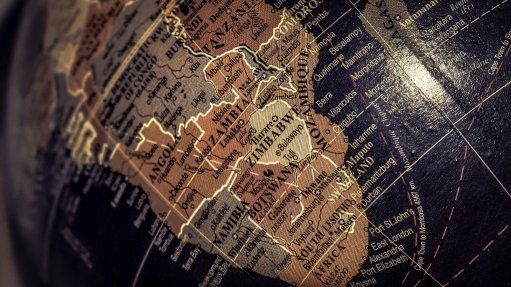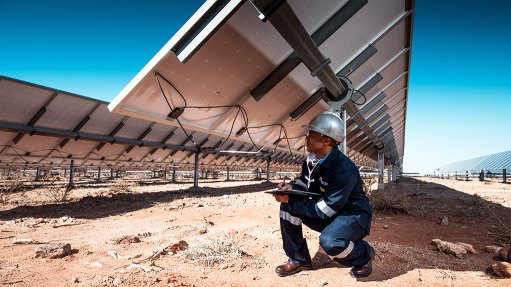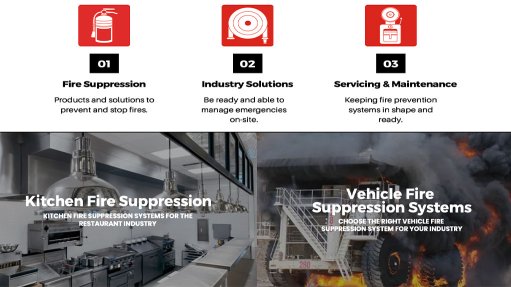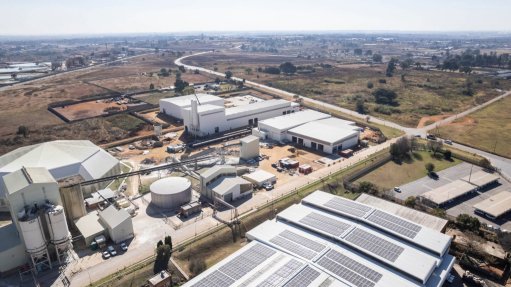Navigating global sustainability standards and the impact for Africa
As the world intensifies its focus on sustainability, Africa faces unique challenges and opportunities in aligning with global standards, a panel of experts revealed during a webinar hosted by Creamer Media on behalf of ESG Africa Conference & Expo on February 13.
“From carbon border taxes to mandatory corporate reporting requirements, the evolving regulatory landscape has significant implications for African businesses, particularly small, medium-sized and microenterprises (SMMEs),“ moderator Wendy Poulton points out.
The EU’s Corporate Sustainability Reporting Directive (CSRD) and mechanisms like its Carbon Border Adjustment Mechanism (CBAM) are shaping how businesses worldwide report and reduce their carbon footprints. While these initiatives aim to create a level playing field and encourage emissions reductions, they pose challenges for African countries with high-emission economies, such as South Africa.
"South Africa, as the twelfth largest global emitter, faces the reality of potential penalties if we don’t transition toward less carbon-intensive energy sources," explains advisory services provider Ernst & Young climate change & sustainability services partner Clemence McNulty. She highlights that while Europe is focusing on balancing the burden of these regulations, African businesses—particularly those in the value chain of large corporations—may not always be granted the same leniency or transition periods.
Challenges for African SMMEs
African SMMEs, which form a significant part of the continent’s economic fabric, are especially vulnerable. These businesses often lack the resources and infrastructure to meet stringent reporting and compliance requirements. Industrial Development Corporation (IDC) responsible investments and sustainability specialist Lwandle Mqadi emphasises the need for collaboration between businesses, governments and financiers to bridge this gap.
"For SMMEs, the challenge is not just meeting global standards but also gathering the necessary data. Many simply don’t have systems in place to track emissions or other sustainability metrics," says Mqadi. Moreover, she notes that the process of engaging with sustainability requirements has often led to unexpected benefits, such as uncovering inefficiencies and finding opportunities to improve operations.
The Role of Collaboration
Both McNulty and Mqadi underline the importance of partnerships in addressing these challenges. Global companies are beginning to take a more collaborative approach, working with suppliers to enhance circularity and improve social outcomes.
"Where once the relationship between large corporations and suppliers was transactional, there’s now a push for deeper collaboration," McNulty notes. This includes providing support for SMMEs to comply with sustainability standards while ensuring that efforts align with national development goals and the UN’s Sustainable Development Goals.
For African businesses, adapting to these regulations is not just about avoiding penalties—it is also about unlocking new opportunities. Improved sustainability practices can lead to concessional financing, better rates and increased efficiency. Poulton points out that these benefits can be significant if approached strategically.
One example is the focus on job creation as part of sustainability reporting. Mqadi explains that in South Africa, metrics like the number of jobs created, the inclusion of women and youth, and the development of new value chains have become key indicators of impact. These metrics not only demonstrate compliance but also highlight the broader social and economic benefits of sustainability initiatives.
To meet global standards, African businesses and governments must invest in data systems, policies and capacity building. Mqadi shares that the IDC has begun implementing sustainability assurance processes, hiring data scientists, and developing robust data analytics systems to support SMMEs in meeting reporting requirements.
"Post-monitoring is becoming just as important as due diligence," she explains. "The conversation doesn’t end once funding is provided. It’s about ongoing interaction and ensuring that businesses can continue to provide the necessary information over time."
While global standards can seem daunting, they also present an opportunity for African businesses to redefine their value proposition. The key lies in balancing compliance with a focus on development impact, fostering partnerships, and leveraging local strengths.
"The challenge is articulating Africa’s unique context and ensuring open lines of communication with global regulators. By doing so, we can find the co-benefits that drive not just compliance, but meaningful change,” concludes McNulty.
Article Enquiry
Email Article
Save Article
Feedback
To advertise email advertising@creamermedia.co.za or click here
Comments
Announcements
What's On
Subscribe to improve your user experience...
Option 1 (equivalent of R125 a month):
Receive a weekly copy of Creamer Media's Engineering News & Mining Weekly magazine
(print copy for those in South Africa and e-magazine for those outside of South Africa)
Receive daily email newsletters
Access to full search results
Access archive of magazine back copies
Access to Projects in Progress
Access to ONE Research Report of your choice in PDF format
Option 2 (equivalent of R375 a month):
All benefits from Option 1
PLUS
Access to Creamer Media's Research Channel Africa for ALL Research Reports, in PDF format, on various industrial and mining sectors
including Electricity; Water; Energy Transition; Hydrogen; Roads, Rail and Ports; Coal; Gold; Platinum; Battery Metals; etc.
Already a subscriber?
Forgotten your password?
Receive weekly copy of Creamer Media's Engineering News & Mining Weekly magazine (print copy for those in South Africa and e-magazine for those outside of South Africa)
➕
Recieve daily email newsletters
➕
Access to full search results
➕
Access archive of magazine back copies
➕
Access to Projects in Progress
➕
Access to ONE Research Report of your choice in PDF format
RESEARCH CHANNEL AFRICA
R4500 (equivalent of R375 a month)
SUBSCRIBEAll benefits from Option 1
➕
Access to Creamer Media's Research Channel Africa for ALL Research Reports on various industrial and mining sectors, in PDF format, including on:
Electricity
➕
Water
➕
Energy Transition
➕
Hydrogen
➕
Roads, Rail and Ports
➕
Coal
➕
Gold
➕
Platinum
➕
Battery Metals
➕
etc.
Receive all benefits from Option 1 or Option 2 delivered to numerous people at your company
➕
Multiple User names and Passwords for simultaneous log-ins
➕
Intranet integration access to all in your organisation


















